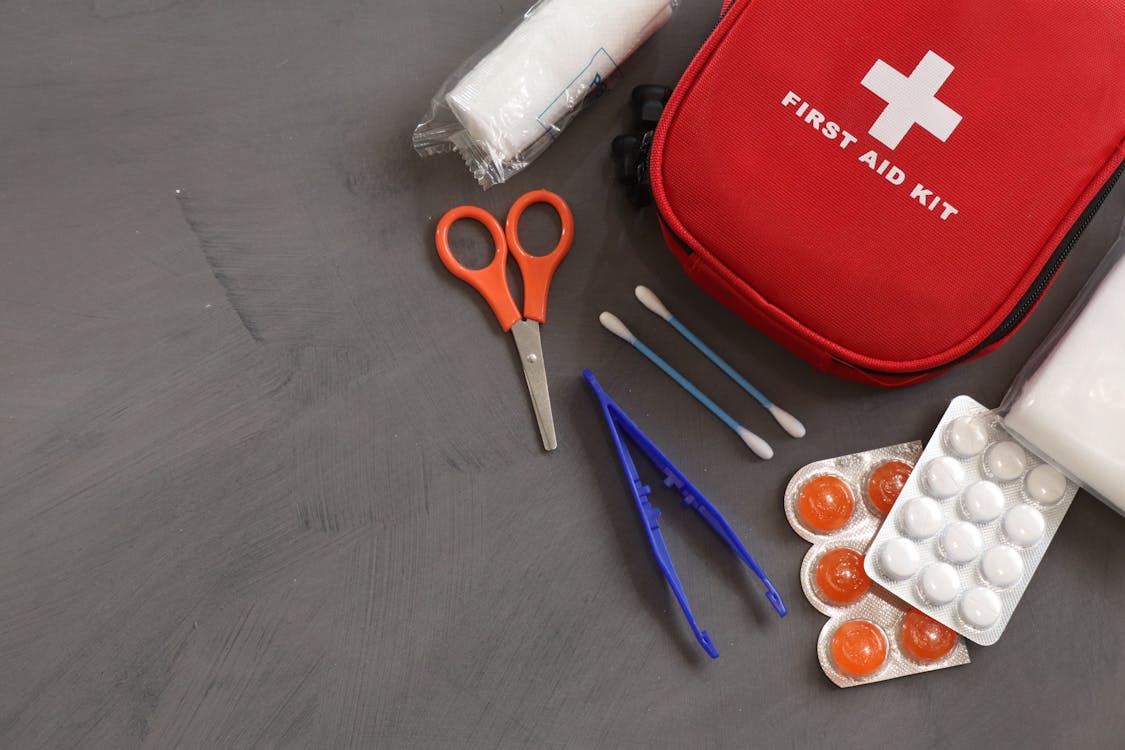First aid is the immediate assistance given to someone who is injured or sick, before professional medical help arrives. It is crucial that we have basic first aid knowledge because emergencies can happen at any time, anywhere – at home, work, school, or in public places.
Here are 40 important reasons why first aid is vital:
1. Saving lives - Basic first aid can be the difference between life and death.
2. Preventing complications - Timely first aid can prevent minor injuries from turning into major ones.
3. Reducing pain - Properly dressing wounds can reduce discomfort and pain.
4. Preventing infection - Treating wounds quickly can reduce the risk of infection.
5. Helping to prevent permanent injury - Knowing what to do in an emergency can help to prevent permanent damage from occurring.
6. Maintaining vital signs - Basic first aid can help maintain breathing, circulation, and other vital signs.
7. Improving recovery - Immediate intervention can help speed up recovery time.
8. Providing reassurance - Offering first aid can provide patients with a sense of security, knowing that they are being cared for.
9. Reducing fear and anxiety - Knowing that somebody is there to help can reduce fear and anxiety in both the patient and bystanders.
10. Ensuring safety - First aid can help to ensure that you and those around you remain safe.
11. Improving confidence - Knowing what to do in an emergency can boost confidence levels.
12. Empowering the individual - Basic first aid training provides individuals with the knowledge and skills to take action in difficult situations.
13. Saving time - Quick intervention can prevent situations from escalating and save valuable time.
14. Increasing survival rates - Basic first aid knowledge can help increase the chances of survival during emergencies.
15. Enhancing teamwork - Being able to work together as a team during an emergency can improve outcomes.
16. Improving problem-solving skills - Critical thinking skills are honed when responding to an emergency.
17. Reducing panic - Having first aid supplies on hand can reduce panic levels in emergency situations.
18. Recognizing warning signs - Basic first aid training can help individuals recognize early warning signs of medical emergencies.
19. Protecting against liability - Employers and organizations that provide first aid training may be protected from liability in case of an emergency.
20. Meeting legal requirements - In some instances, it is a legal requirement for organizations to have trained first aiders on staff.
21. Improving community health - Basic first aid training can promote health and safety within communities.
22. Encouraging social responsibility - First aid training promotes social responsibility by encouraging individuals to care for their fellow citizens.
23. Promoting preparedness - Preparedness is key during emergencies, and first aid training can help individuals be ready for any situation.
24. Encouraging positive behavior - Individuals who receive first aid training are likely to behave more positively and take action during emergency situations.
25. Supporting mental health - Providing first aid can support mental health by reducing stress levels and promoting feelings of accomplishment.
26. Reducing healthcare costs - Timely first aid intervention can reduce healthcare costs associated with prolonged hospital stays and treatments.
27. Supporting elderly care - Basic first aid skills can help individuals care for elderly relatives at home.
28. Responding to cardiac events - Knowing CPR and how to use an AED can improve the chances of survival during cardiac events.
29. Supporting infant care - Basic first aid skills can help parents care for infants and young children.
30. Managing allergic reactions - Knowing how to administer medication and manage allergic reactions can save lives.
31. Managing chronic conditions - First aid skills can help individuals manage chronic conditions such as diabetes or asthma.
32. Managing epilepsy - Knowing how to manage seizures can improve outcomes for individuals with epilepsy.
33. Supporting mental health crises - Knowing how to provide first aid during a mental health crisis can save lives.
34. Recognizing stroke symptoms - Recognizing the early warning signs of stroke can improve outcomes.
35. Managing bleeding - Knowing how to manage bleeding can save lives in emergency situations.
36. Managing burns - Knowing how to manage burns can reduce the risk of infection and permanent scarring.
37. Managing fractures - Knowing how to splint fractures can reduce pain and prevent further injury.
38. Improving hydration - Knowing how to provide fluids during emergencies can improve hydration levels.
39. Supporting sports injuries - Basic first aid can help manage common sports injuries.
40. Supporting outdoor activities - Knowing basic first aid can help individuals stay safe during outdoor adventures.



